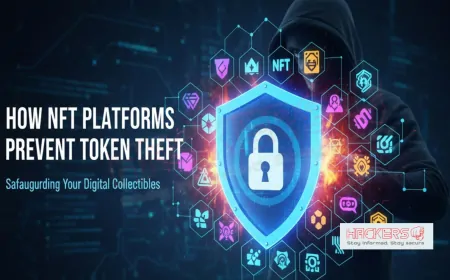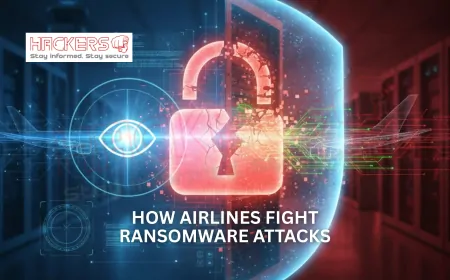How India Can Become a Global Hub for Cybersecurity Research
Imagine a world where India, a nation of vibrant tech talent, leads the charge against cyber threats, protecting billions online. With a booming IT sector, young population, and growing digital economy, India stands at a crossroads. Cybersecurity research, which develops new ways to secure data and systems, is critical as cyber attacks cost trillions globally, per Cybersecurity Ventures. I've worked with Indian startups and seen firsthand the potential: brilliant minds solving complex problems. Yet, India lags in global research output. Why? And how can it leap forward? This blog explores practical steps, from education to policy, to make India a powerhouse in this vital field. Whether you're a student, policymaker, or tech enthusiast, this is India's moment to shine.

Table of Contents
- India's Current Cybersecurity Landscape
- Reforming Education for Research Talent
- Fostering Industry-Academia Collaboration
- Government Support and Policy Frameworks
- Investing in Research Infrastructure
- Building Global Partnerships
- Promoting a Cybersecurity Culture
- Encouraging Diversity and Inclusion
- Case Studies of Indian Success
- Action Plan for India Table
- Conclusion
- Frequently Asked Questions
India's Current Cybersecurity Landscape
India's IT industry is a giant, contributing 8 percent to GDP, per NASSCOM. Cities like Bengaluru and Hyderabad host tech hubs. Yet, cybersecurity research lags. In 2023, India ranked low in global research publications, despite rising cyber incidents: 1.6 million attacks reported, per CERT-In.
Strengths: Large STEM graduate pool, 1.5 million annually. Affordable talent attracts MNCs like Microsoft. Weaknesses: Research funding is under 1 percent of GDP, compared to 3 percent in the US. Most focus on IT services, not innovation.
Opportunity: Digital India pushes online services, needing secure systems. Threats like ransomware demand local solutions. Gap lies in applied research, turning ideas into tools.
Story: A Chennai startup's encryption algorithm went global, showing potential. Scaling this needs strategy.
More: Brain drain pulls talent abroad. Retain via incentives, focus on local issues like Aadhaar security.
Reforming Education for Research Talent
India's colleges produce engineers, but few researchers. Curricula emphasize rote learning over inquiry.
Fixes:
- Introduce cybersecurity early: Add modules in high schools, basics like password safety.
- Research-focused degrees: IITs, NITs offer MS/PhD tracks with cyber labs.
- Practical training: Teach tools like Wireshark (network analysis) in undergrad.
- Incentivize research: Scholarships for cyber projects, like ISRO does for space.
Outcome: Curious minds tackle real problems, not just exams. Example: BITS Pilani's cyber electives boosted patent filings.
Expand: Mentor programs with pros. Hackathons for students, like Smart India Hackathon. Align with global certs like CEH.
Fostering Industry-Academia Collaboration
Universities innovate; companies apply. India needs tighter bonds.
Steps:
- Joint labs: Like IBM-IIT partnerships, fund research hubs.
- Internships: Mandatory cyber internships, credit-based.
- Incubators: Support startups at campuses, like IIT Madras.
- Knowledge share: Industry mentors teach, academics advise firms.
Benefit: Real-world problems guide research. TCS's lab with IISc produced AI defense tools.
More: Feedback loops refine curricula. Co-publish papers. Scale via startup ecosystems in Tier-2 cities.
Government Support and Policy Frameworks
Government sets tone. India's National Cyber Security Policy 2013 needs updates.
Actions:
- Increase funding: Raise R&D budget to 2 percent GDP.
- Tax breaks: Incentivize cyber research investment.
- Regulations: Clear rules for ethical hacking, data privacy.
- Centers of excellence: Like DRDO for defense, cyber hubs in states.
Impact: CERT-In can lead global standards. Policies attract FDI.
Deeper: Public-private partnerships. Subsidize training, like Digital India skilling.
Investing in Research Infrastructure
Research needs tools: High-performance computing, cloud access.
Plan:
- Cyber labs: Equip colleges with virtual machines, Kali Linux.
- Open-source: Promote free tools for cost-effective research.
- Data centers: Secure sandboxes for testing attacks.
- Cloud credits: AWS, Google partnerships for students.
Example: IIIT Hyderabad's cloud lab boosted blockchain research.
More: Cybersecurity testbeds, like smart grid sims. Fund rural colleges too.
Building Global Partnerships
India can't isolate. Collaborate with US, EU, Israel.
Steps:
- Exchange programs: Students, faculty in MIT, Stanford labs.
- Joint research: With NATO on cyber defense.
- Conferences: Host Black Hat Asia, attract experts.
- Standards: Align with NIST frameworks.
Benefit: Global credibility. Indian firms lead in bug bounties on HackerOne.
Expand: Tap diaspora talent. Co-develop AI tools for threats.
Promoting a Cybersecurity Culture
Research thrives in aware societies. India needs public engagement.
Ideas:
- Campaigns: Like Swachh Bharat for cyber hygiene.
- Hackathons: National events, prize funds.
- Media: Cyber shows on OTT platforms.
- Schools: Cyber clubs, ethical hacking workshops.
Outcome: Young talent inspired early. Bengaluru's CyberSafe campaign cut phishing 20 percent.
Encouraging Diversity and Inclusion
Diverse teams innovate better. Women, rural talent underrepresented.
Actions:
- Scholarships: For women, marginalized groups.
- Outreach: Cyber camps in small towns.
- Mentorship: Programs like Women in Cybersecurity India.
- Inclusive hiring: Research roles open to non-tech backgrounds.
Result: Broader perspectives, like social engineering defenses.
Case Studies of Indian Success
IIIT Bangalore: AI-based intrusion detection, global patents.
Quick Heal: Antivirus software, exports worldwide.
Bugcrowd India: Ethical hackers earn millions in bounties.
Lessons: Invest in talent, scale via global platforms.
Action Plan for India Table
| Initiative | Description | Expected Impact | Challenges and Solutions |
|---|---|---|---|
| Education Reform | Practical cyber courses | Research-ready grads | Faculty training; hire pros |
| Industry Collaboration | Joint labs, internships | Applied innovation | Contracts; clear IP rules |
| Government Policy | Funding, regulations | National push | Bureaucracy; fast-track grants |
| Infrastructure | Labs, cloud access | Research capacity | Cost; open-source tools |
| Global Partnerships | Exchanges, conferences | Global leader | Visa issues; virtual collabs |
| Culture Building | Public campaigns | Talent pipeline | Awareness; leverage media |
This roadmap guides India's ascent.
Conclusion
India has the talent, drive, and market to lead cybersecurity research globally. By reforming education, fostering collaborations, investing smartly, and promoting inclusivity, India can turn potential into action. Government and industry must align, while a culture of security inspires youth. Success stories show it's possible; scaling them needs commitment. The stakes are high: A secure digital India drives economic growth, global trust. Start now, from classrooms to boardrooms, and build a future where India doesn't just follow but sets the pace in fighting cyber threats. The world is watching.
Frequently Asked Questions
Why focus on cybersecurity research?
Protects digital economy, drives innovation, creates jobs.
India's biggest strength?
Large, young STEM talent pool, cost-effective workforce.
Main barriers now?
Low R&D funding, outdated curricula, brain drain.
How can colleges contribute?
Add practical cyber courses, research tracks, hackathons.
Role of government?
Fund research, update policies, create centers.
Industry's part?
Partner for labs, internships, mentor students.
Best institutes for cyber?
IITs, IIITs, BITS Pilani; expanding fast.
Global partnerships how?
Exchanges, joint projects, host conferences.
Cost of infrastructure?
High initially; offset by open-source, cloud credits.
Diversity matters why?
Diverse views improve threat detection, innovation.
Ethical hacking in India?
Growing; bug bounties, certs like CEH popular.
Time to see results?
5-10 years with sustained effort.
Public awareness role?
Inspires talent, reduces attack success rates.
AI in India's research?
Key for advanced tools, needs ethical frameworks.
Jobs from research hub?
Millions, from analysts to AI specialists.
Small cities contribute?
Yes, via remote labs, local startups.
Measure success how?
Patents, publications, global rankings, job rates.
Start for students?
Free courses, TryHackMe, join cyber clubs.
Private sector incentives?
Tax breaks, recognition in global markets.
Worth the investment?
Yes, secures nation, boosts GDP, global prestige.
What's Your Reaction?










































































